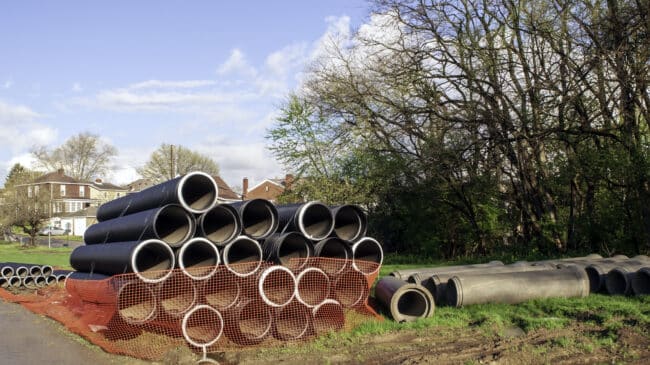Towamencin Township, a Philadelphia suburb, will soon conduct its second town hall meeting to discuss the government’s proposed sale or lease of its sewer system. While local leaders have expressed reasons why the potential transaction would help the town manage its sewer and its larger long-term financial obligations, the opposition to the privatization proposal has grown. It is important that Towamencin make its decision based on what’s best for the sewer’s lifecycle and local residents.
A group of citizens, the Towamencin Neighbors Opposing Privatization Efforts (NOPE), has been driving much of the local opposition to the sewer deal, raising fears over rate increases and a lack of local control over the sewer infrastructure. Both sets of concerns suffer from misinformation or misunderstandings about sewer leases or privatization, how the sewer system is regulated, and how it would be operated if there’s a deal. For example, the town’s answers to frequently asked questions (FAQs) make it clear that because of the system’s needs for capital improvements and maintenance, residents’ sewer rates are going to rise whether or not there is a lease or sale and those rates increases could even be higher if there isn’t a sale. The FAQ says:
Any future capital expenditures, of which there is an identified ~$11 million over 10 years on the sewer conveyance side and ~$10.5 million through 2025 for the sewer treatment side, would likely be funded through a combination of fund balance and publicly issued debt. Any publicly issued debt would likely be supported through future rate increases.
Aside from the capital costs outlined the Township would also likely have to raise rates to keep pace with inflation and the effect it has on the various inputs that are used in the sewer collection and treatment process. Similarly, it is likely that there would be increased operational costs that are associated with permitting changes.
These types of cost increases are inevitable issues for water and sewer systems.
Additional concerns are raised within the FAQs document about maintaining regulatory compliance and meeting the town’s pension obligations. Preventing the sewer sale would not eliminate those needs and concerns, it would just give the local government fewer ways to address them.
Local leaders should try to demonstrate how residents’ concerns over a potential lack of local control would be legally addressed in any sewer contract with a private partner. The sewer system’s buyer or lessor would be governed by terms specified in a contract to ensure the town wouldn’t get blindsided by poor service or unexpected rate increases. If sold, the Pennsylvania Utilities Commission would have to approve all rate increases. If leased, the agreement would set the permissible rate increases agreed to by both the township and the company. As is the case with continued government operation, rate hikes will happen, but they would be predictable and set by the contract.
Towamencin officials should also make it clear that the locality would not lose control over how the sewer is operated, either. As part of any lease or sale, the new sewer operator would have to comply with contractual terms set by Towamencin specifying how the sewer is going to be operated and maintained for decades, as well as the upgrades and replacements that must be made over the life of the contract. Towamencin can and should set the standards to be met and the penalties for failing to meet those terms. These deals often include financial penalties through contract provisions. And if a private sewer operator completely fails to do those things, the contract would have termination agreements that allow Towamencin to get out of the deal. The operator would also be subject to fines from the Environmental Protection Agency and other regulators.
In contrast, if the government continues to operate the sewer system, there’s a greater likelihood of putting off needed investments. Deferred maintenance issues add even more costs that taxpayers must ultimately bear. If the town falls behind on replacement and a sewer pipe breaks, for example, taxpayers have to pay to replace the broken pipe and to clean up the mess. The breakage could also damage roads or other infrastructure the pipe is buried under or cause other issues that ultimately fall upon residents to pay for.
A private provider under a multi-decade lease or sale agreement will want to avoid such problems, which add costs the company has to absorb in addition to losing money for failing to meet the terms of the agreement. The company has financial incentives to do maintenance on schedule and prevent costly problems that come from deferring maintenance.
Sales and leases can be valuable tools when governments lack the resources internally to effectively manage all that’s demanded of them. Such agreements allow local agencies to set detailed terms that must be met while transferring financial risks from taxpayers to private partners, who may be better capable of handling them.
It’s understandable for local residents to demand more information about potential sewer leases and sales but completely removing risk management tools like public-private partnerships and privatization would make governing more difficult.
Towamencin’s sewer system is clearly in need of repair and modernization, which means an increase in rates and costs regardless of who is running the system. Local officials and residents should look at all available options and solutions to determine how the needed repairs, maintenance, and upgrades can most efficiently be provided.

